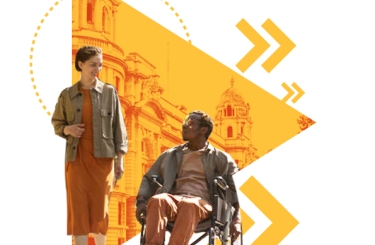Building on this learning, a group of London Funders members, including national, regional and local funders from independent, public and corporate sectors, have developed Propel - a funder collaboration that is primarily long-term and systemic. Propel prioritises the communities who experience structural inequality and the civil society groups who are best placed to make change happen.
The aim is to provide long-term, flexible funding so that these community groups and organisations have the chance to explore, develop and lead collaborative approaches to tackle some of London’s biggest issues.
So how are we doing so far?
Propel opened for applications in October 2022. We’ve analysed the data from the first round of grants, which shows that 9 funders made 89 grants, £25,846,623. More interestingly, 100% of the Explore Grants (average grant of £48k for one year), and 82% of the Deliver and Develop Grants (average grant of £396K for up to three years), went to organisations led by and for the communities they serve. We’ll be publishing the full grants list and an interactive grants map on the Propel website shortly.
Reflecting on the first round with Propel partners (funders, equity infrastructure organisations, our leaning partner IVAR and our tech partner Outlandish), we’ve recognised that bringing together a collaboration focused on long-term change has not always been easy but our shared ambitions and principles have kept us all on track, and, rooted in our overall desire to work together, constructive challenges between partners are heard and feed into our shared desire to do more and to do better.
We’re pleased about the proportion of funding that has gone to equity-led organisations, but recognise that there is more to do. We’ve celebrated the role that equity partners have played in Propel; in co-designing the principles, priorities and process and in the practical support for grantees & assessors. But we recognise that our equity partners need the capacity to meet more, to prep and plan – the model of paid partners is the way to go, but this isn’t always about funding, it’s also about the ability to flex capacity in small organisations, and that requires investment and flexibility across all of their funding streams.
Our shared principles are critical for how we hold ourselves accountable to each other.
We use the principles to structure all of our reflection and planning sessions and want to develop our understanding of what it means to be accountable within Propel, to other partners and to grantees and communities.
We know that we need to get better at articulating what we mean by systemic change, recognising our own roles in systems, and understanding what support is needed by grantees who are doing work to create systemic change including financial and non-financial resources.
And on risk, we agree that “the biggest risk of all is not taking risks”. We know that if we are to change funding models and behaviours, we can’t simply do what funders always do, and making mistakes is a rich source of learning. We recognise that this is very challenging for funders, not least for those spending public funds, but we want to jointly model not needing to get everything right the first time, consider how we can communicate the impact of this way of working and how we can influence trustees, politicians and wider stakeholders.
What next?
We have a busy year ahead. We’re launching a Learning Network for funders and grantees together and working with funders to develop shared reporting (to match the shared application form). We’ll also be thinking about a process for grantees to transition between short- and longer-term grants. Across the collaboration, we’re working on the balance between the desire to make more grants available and the opportunity to learn from the ones we’ve just made. Immediately we can see opportunities to improve, based on feedback from applicants, which includes shifting to a two-stage application process. For future rounds, we’ll be using the grants data to see which communities need more targeted outreach and support and we’ll be looking to increase the role that equity partners play in assessing and making decisions. Future rounds could also involve current grantees in co-designing processes.
Long-term investment is, in part, what it will take to create transformational change for communities who experience structural inequality.
But, however busy we are now, we need to keep our eyes on the long term. One of the boldest things about Propel is the ambition for long term funding relationships (up to ten years).This, in part, is what it will take to create transformational change for communities who experience structural inequality, and having made that commitment to London’s civil society organisations, we need to make it real. To deliver on ambition to invest in London’s communities in the next ten years, we need to keep bringing new funders into the collaboration.
If you’re excited by the potential of Propel, and you’d like to know more or to explore how you could get involved, please contact James or Geraldine.


